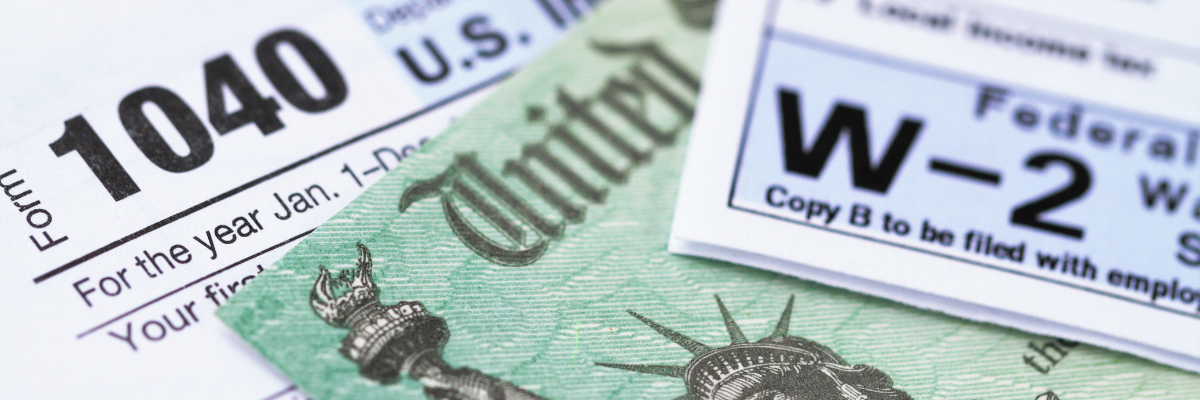April 15, 2025
It’s April 15—Tax Day in the U.S.—and if you’re a business owner or HR professional, chances are W-2s, filings, and compliance have been front and center for weeks (if not months). But here’s the thing: tax season doesn’t have to be stressful. The right payroll and HCM technology can turn what’s traditionally a time-consuming, error-prone scramble into a streamlined, accurate, and surprisingly painless process. From automatically balancing year-to-date totals to generating and distributing W-2s on time, a robust payroll system ensures nothing slips through the cracks. No more cross-checking data across platforms, no more last-minute tax filings, and no more anxiety about penalties or missed deadlines. At Simco, we get it—because we help businesses simplify this process every single day. The Challenges of Traditional Payroll Tax Management If you're still managing payroll taxes manually—or using disconnected software systems—it’s all too easy to fall behind. Some common issues employers face include: Human error : Tax calculations, forms, and deadlines are complex. A small mistake can lead to penalties or costly overpayments. Time-consuming manual work : Without automation, payroll processing can involve endless imports, exports, and reconciling data across multiple platforms. Compliance risk : With ever-changing tax laws at the federal, state, and local levels, staying compliant can become overwhelming without the right tools. How the Right Technology Can Make Tax Season a Breeze Today’s modern payroll and HCM systems are designed to simplify these challenges. Here’s how the right technology can help: 1. Automated Tax Filing and Payments: An integrated payroll system automates tax calculations, deductions, and filings. Forms like W-2s and W-3s are automatically generated, filed, and paid—without manual input. This reduces the risk of late filings, penalties, and missed deadlines, ensuring compliance with the IRS and state tax agencies. 2. Streamlined W-2 Management: W-2s can be a headache to manage—especially if you have complex tax scenarios like multi-state employment. With an automated system, W-2s are generated and distributed electronically, ensuring accuracy even in complex situations. Employees receive the correct form without you having to spend valuable time cross-checking or manually making corrections. 3. Self-Balancing Capabilities: A self-balancing payroll system ensures that your year-to-date totals and tax filings are accurate, eliminating the need for extensive manual reconciliation. By automatically matching figures in real-time, it streamlines year-end reporting, providing peace of mind when the filing deadline approaches. 4. Fewer Third-Party Imports and Exports: With everything integrated into a single platform, you won’t need to rely on third-party software or services for tax filing and reporting. This means fewer opportunities for errors, fewer manual imports and exports, and significant time saved during payroll processing. 5. Automated Adjustments and Updates: Tax laws and rates change frequently. With the right payroll system, you won’t have to worry about manually updating deductions or tax rates. The system automatically applies changes—whether it’s an update to federal tax rates or state-specific deductions—so your payroll is always up to date. 6. Expert Support When You Need It: Even with the best technology, tax season can present complex challenges. That’s why it’s important to have access to expert support. Whether you need help with multi-jurisdiction filings, audit preparation, or just have questions about tax return procedures, our team of HCM Specialists at Simco is here to provide guidance and ensure that you’re compliant every step of the way. Why Choose Simco for Smarter Payroll and Tax Management? As an isolved Network Partner, we offer a fully integrated payroll and tax management system that is built to handle the complexities of tax season—and beyond. We provide businesses with the tools they need to automate tax filings, ensure compliance, and streamline payroll processing. Here's how we do it: All-in-One Payroll & Tax Platform : From payroll processing to tax deposits and W-2 filings, everything happens within one system, reducing manual work and the risk of errors. Automatic Filing & Timely Accuracy : Federal, state, and local tax filings are completed automatically and on time, ensuring your employees receive only one accurate W-2 form—even in multi-state tax scenarios. Error-Free Tax Reporting : Our self-balancing ledger helps reduce errors and simplifies reconciliation, making tax reporting easier and faster. Expert Support : Whether it’s navigating multi-jurisdictional filings, preparing for an audit, or handling amendments, our team is always available to offer expert advice and assistance. Cost-Effective Solutions : We offer top-tier tech at competitive pricing, often matching or beating our competitors (learn about the Simco Price Match Commitment here !), while providing the personalized service that large providers can’t. Let’s Make Next Tax Season Easier, Starting Today It’s never too early to think about next year. With our unified payroll/HCM solution at Simco, you can save time, reduce stress, and ensure compliance all year long. It’s time to upgrade your payroll system to one that works smarter, not harder. Let’s chat and explore how we can help streamline your payroll and tax processes, so you can focus on growing your business with confidence.





